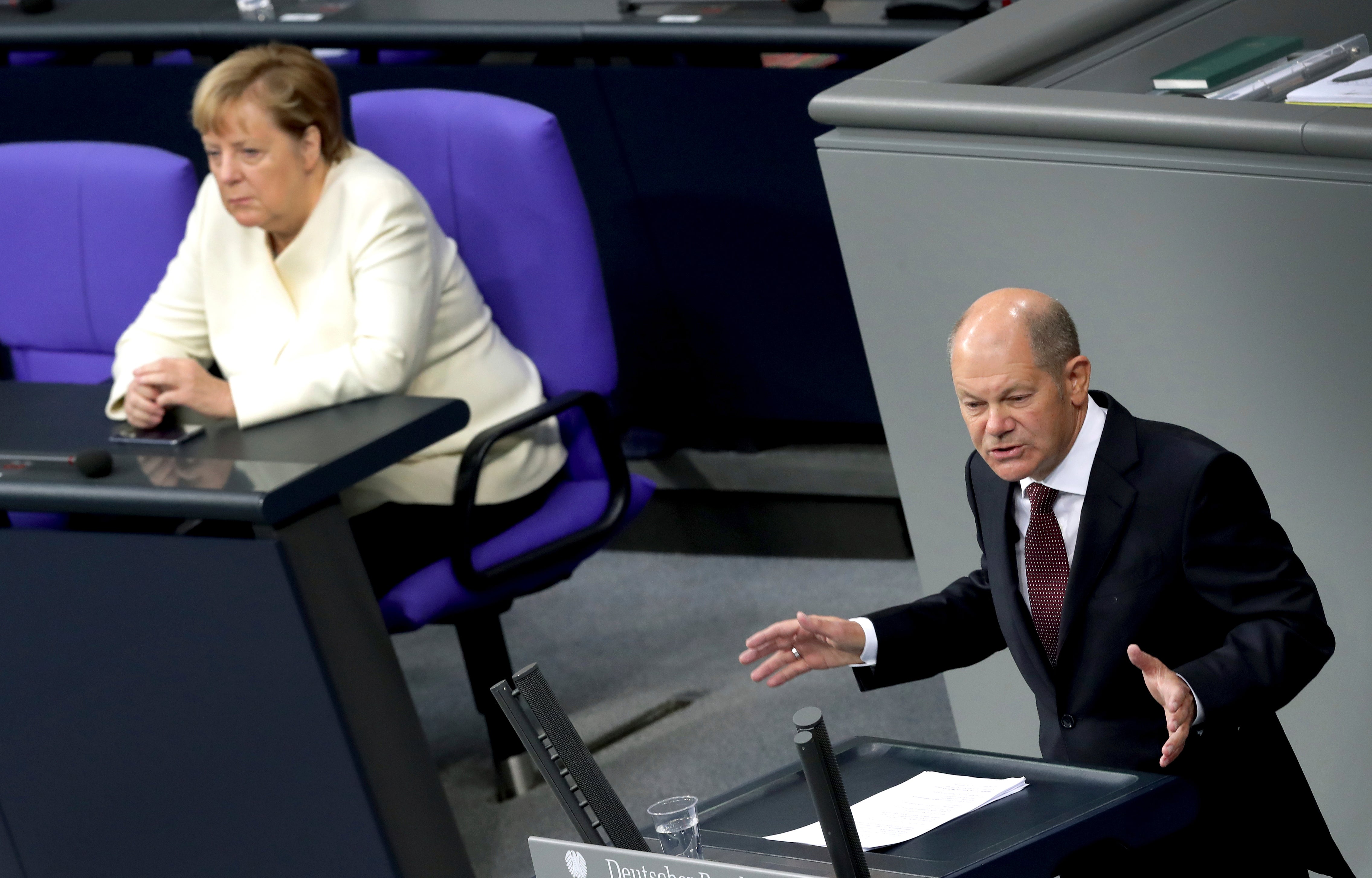German minister says debt won't reach financial crisis level
Germany’s finance minister says the country's debt load won’t reach the level it did in the financial crisis a decade ago as a result of the coronavirus pandemic

Your support helps us to tell the story
From reproductive rights to climate change to Big Tech, The Independent is on the ground when the story is developing. Whether it's investigating the financials of Elon Musk's pro-Trump PAC or producing our latest documentary, 'The A Word', which shines a light on the American women fighting for reproductive rights, we know how important it is to parse out the facts from the messaging.
At such a critical moment in US history, we need reporters on the ground. Your donation allows us to keep sending journalists to speak to both sides of the story.
The Independent is trusted by Americans across the entire political spectrum. And unlike many other quality news outlets, we choose not to lock Americans out of our reporting and analysis with paywalls. We believe quality journalism should be available to everyone, paid for by those who can afford it.
Your support makes all the difference.Germany's debt load won't reach the level it did in the financial crisis a decade ago as a result of the coronavirus pandemic the finance minister said Tuesday, and it will still look better than that of Germany's peers in the Group of Seven did before the virus outbreak.
Olaf Scholz was presenting to parliament a draft 2021 budget that foresees significant borrowing for the second consecutive year as Germany, Europe's biggest economy works to limit the economic fallout of efforts to contain COVID-19.
The crisis has derailed the government’s dedication to keeping its budget balanced, long a point of pride. After six years in the black, it is borrowing a net 217.8 billion euros ($253.7 billion) this year to finance rescue and stimulus packages and cover an expected shortfall in tax revenue. Next year, it plans to borrow a further 96.2 billion euros.
“If we didn't act, we would have to use much more money, and at the same time squander the future of our country,” Scholz told lawmakers. “Not acting would be much more expensive than acting.”
Scholz noted that Germany's debt load dropped below 60% of gross domestic product last year. “The debt ratio will not rise to the level it did in the last financial crisis,” he added. “Back then, our debt went up to over 80% of economic output; this time, according to current calculations, we will climb to about 75-76% ... and that is a good sign that we will manage to get this debt ratio back down in the coming years.”
In comparison with Germany's peers in the G-7 of leading industrial powers, Scholz said, “our debt ratio after the crisis will be lower than in all these countries before the crisis.”
The 2021 budget plan calls for spending of 413.4 billion euros next year, down from this year’s exceptionally high 508.5 billion euros, a figure which was swollen by spending on rescue packages.